Every family has that one person who somehow becomes the unofficial caregiver, tech support, babysitter, and life coach all rolled into one. You leave home for ten minutes and suddenly you’ve been volunteered to host Thanksgiving and take in someone’s elderly relative. It’s practically a family tradition.
That’s exactly what happened to today’s Original Poster (OP), who found herself in an impossible situation. While her grandmother already lived with her family, her sister’s husband decided to add his grandmother to the mix, expecting her to take care of her as well. However, when she refused and made a threat, it left her sister furious.
More info: Reddit
Picture living your normal life, keeping your household running smoothly, and suddenly, someone decides it’s a great idea to temporarily move in a new family member
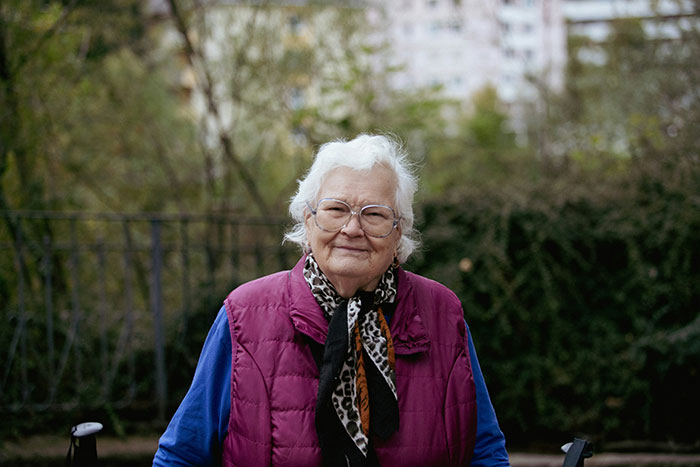
Image credits: Benjamin Brunner / Unsplash (not the actual photo)
The author and her brother take care of their grandmother, who moved in with the rest of the family because she can no longer manage her own house
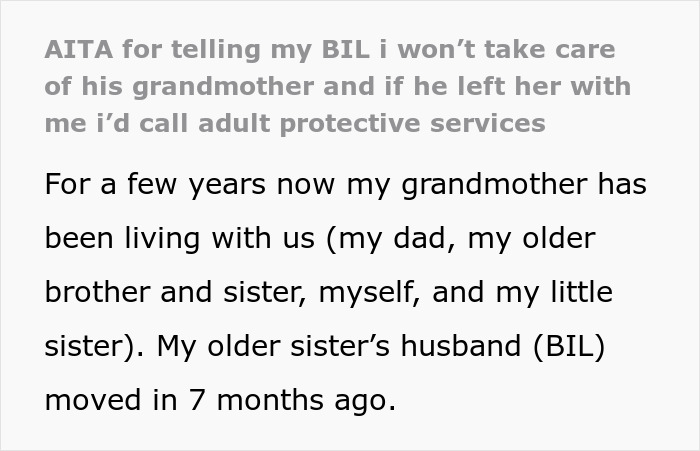
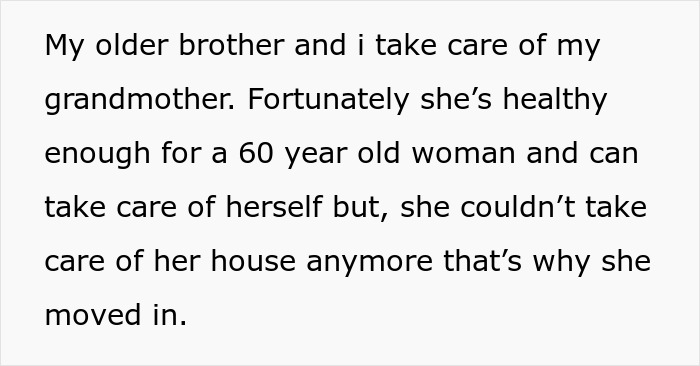

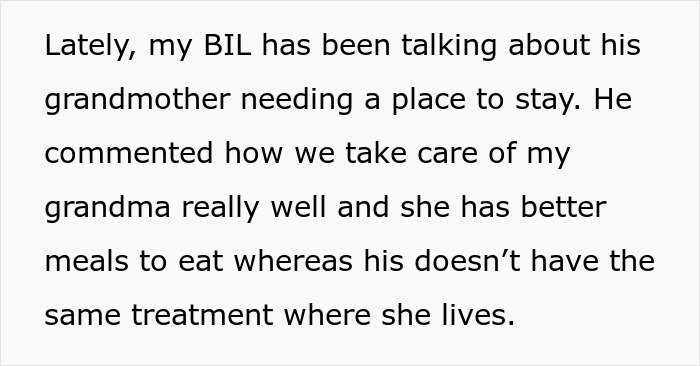
Image credits: throwawayac437
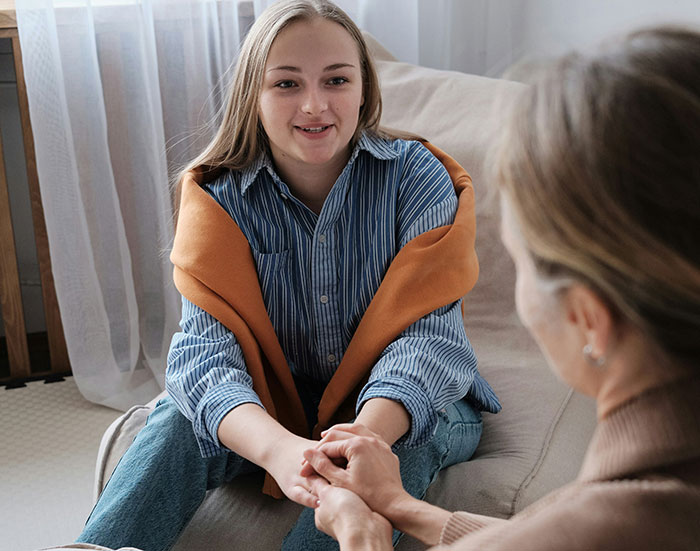
Image credits: Andrej Lišakov / Unsplash (not the actual photo)
Seven months after her sister’s husband moves in, he suggested bringing his grandmother to live with them and assumed the author will care for her
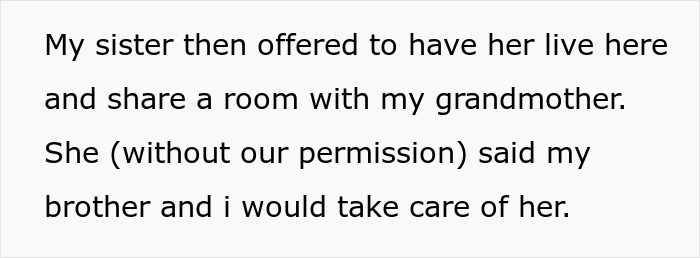
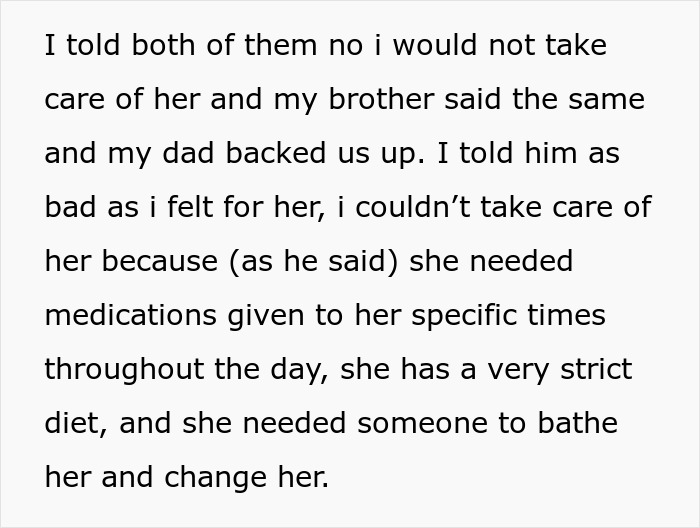
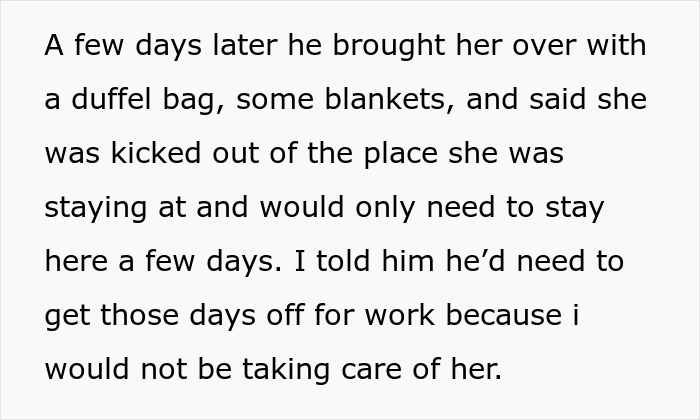
Image credits: throwawayac437

Image credits: Getty Images / Unsplash (not the actual photo)
She refused, citing the grandmother’s strict medical needs, diet, and personal care requirements, with her dad and brother backing her up

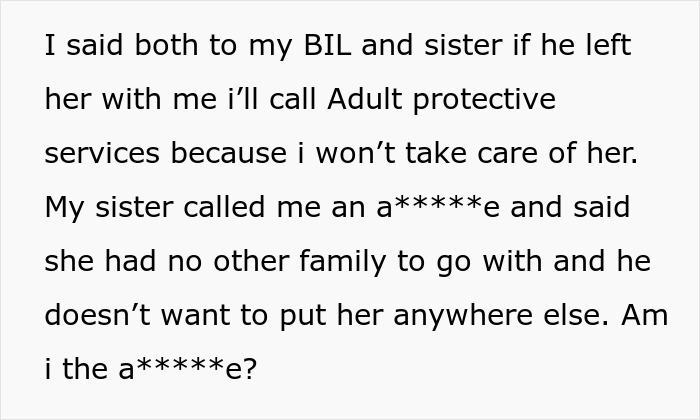
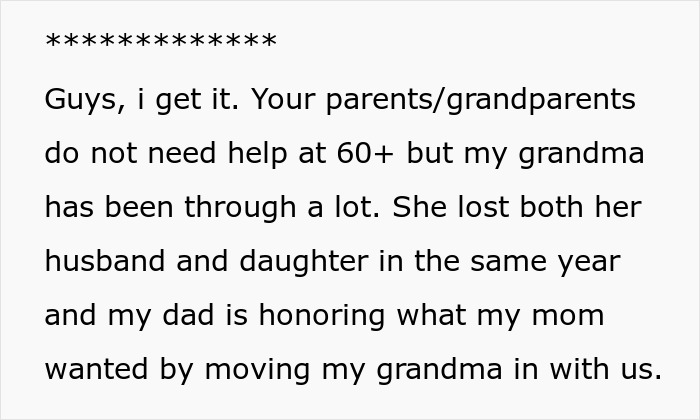

Image credits: throwawayac437
Despite her refusal, the brother-in-law showed up with his grandmother, prompting her to threaten calling Adult Protective Services if left responsible
For years, the OP and her older brother had been caring for their 60-year-old grandmother, who moved in with the rest of the family when maintaining her own house had become too difficult. The arrangement worked and they did everything to ensure their grandmother was well taken care of.
Then, the OP’s sister’s husband started commenting on how nice their grandma’s life seemed compared to his own grandmother’s, and suggested that his grandmother should move in too. Without asking anyone, the sister decided her husband’s grandma could just share a room with their grandmother. She even volunteered the OP to handle the caregiving all without consulting the OP.
She refused, pointing out that the brother-in-law’s grandmother’s medical needs were far beyond what she could safely handle, and her dad agreed and backed her up. This refusal didn’t sit well with the brother-in-law, who later showed up with his grandmother’s bags and blankets, claiming she’d been “kicked out” of where she was and would only stay for a few days.
The OP stood firm, telling him he’d need to take time off work to care for her himself, but her sister insisted it would just be a “trial run”, and this was where the OP made it clear that if they tried to leave the grandmother in her care, she’d call APS. Her sister, furious, called her a jerk for refusing to help. Naturally, this left the OP wondering if she really was wrong for not wanting to take care of her brother-in-law’s grandmother.

Image credits: Getty Images / Unsplash (not the actual photo)
Family caregivers typically face a wide range of pressures that can significantly affect their overall well-being. Care Link highlights that these strains are not limited to one area, rather they include emotional issues, such as stress and anxiety from constant responsibility, physical demands from daily caregiving tasks, and financial burdens related to medical costs or reduced work hours.
Besides, caring for a healthy older adult is very different from supporting someone with medical needs, which could explain why the OP was opposed to taking in the brother-in-law’s grandmother with health issues. Decent notes that healthy older adults can perform most daily activities on their own and benefit from encouragement to stay active, and to maintain social engagement and preventive care.
In contrast, older adults with significant health conditions need more intensive support, and their care often involves managing multiple medications, coordinating with healthcare providers, and monitoring for complications. This specialized care therefore demands both medical knowledge and careful attention to ensure their well-being and safety.
In this case, saying no to family obligations then involves balancing ethical considerations with personal boundaries. According to Epoché Magazine, family duties are often moral rather than absolute, meaning they require thoughtful discretion rather than automatic compliance and should be carefully considered before venturing into it.
Netizens supported the OP, emphasizing that she was not obligated to care for her sister’s husband’s grandmother. They stressed that the brother-in-law and sister were overstepping boundaries and that the grandmother’s needs were beyond what the OP could safely handle.
What do you think about this situation? Do you think the OP was right to refuse, or should family always step in? We would love to know your thoughts!
Netizens focused on the entitlement and manipulation displayed by the author’s brother-in-law, criticizing him for assuming she would automatically take responsibility
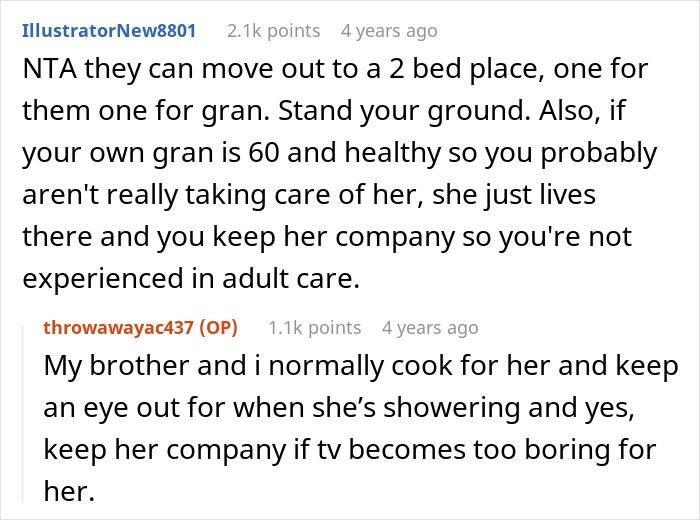
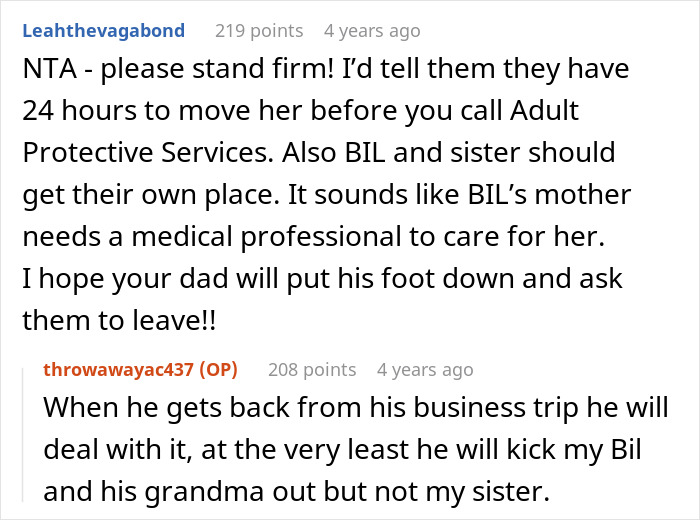



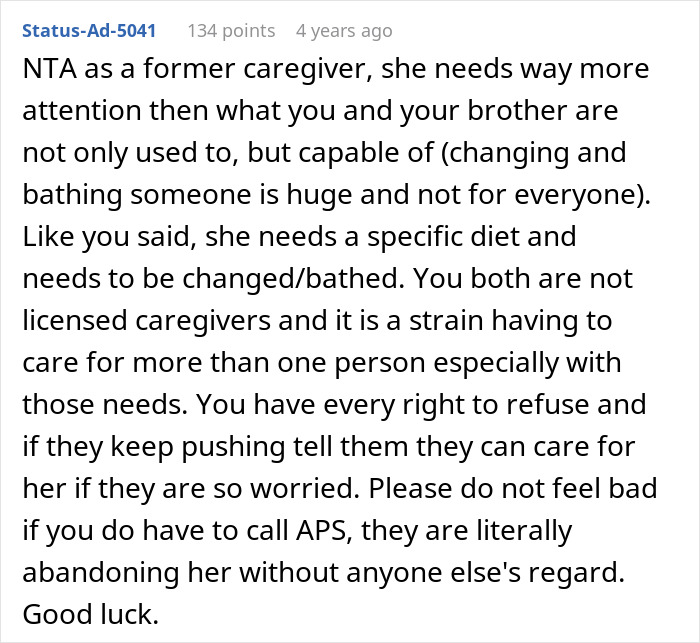
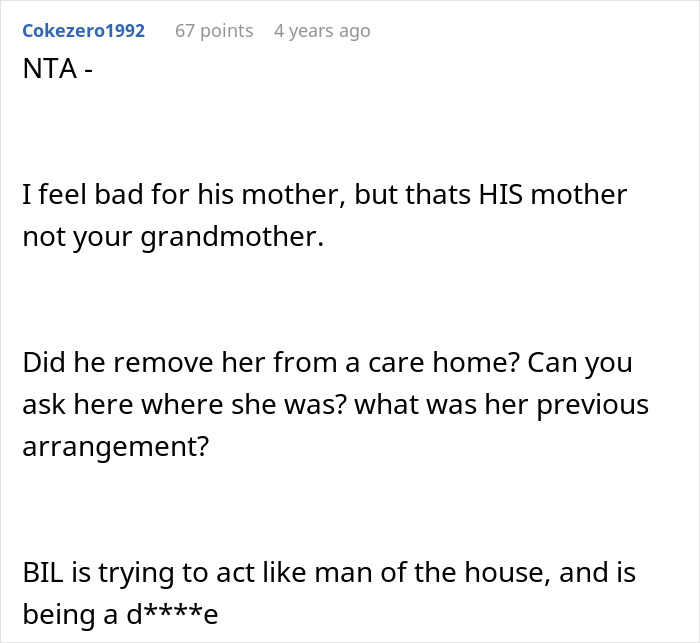
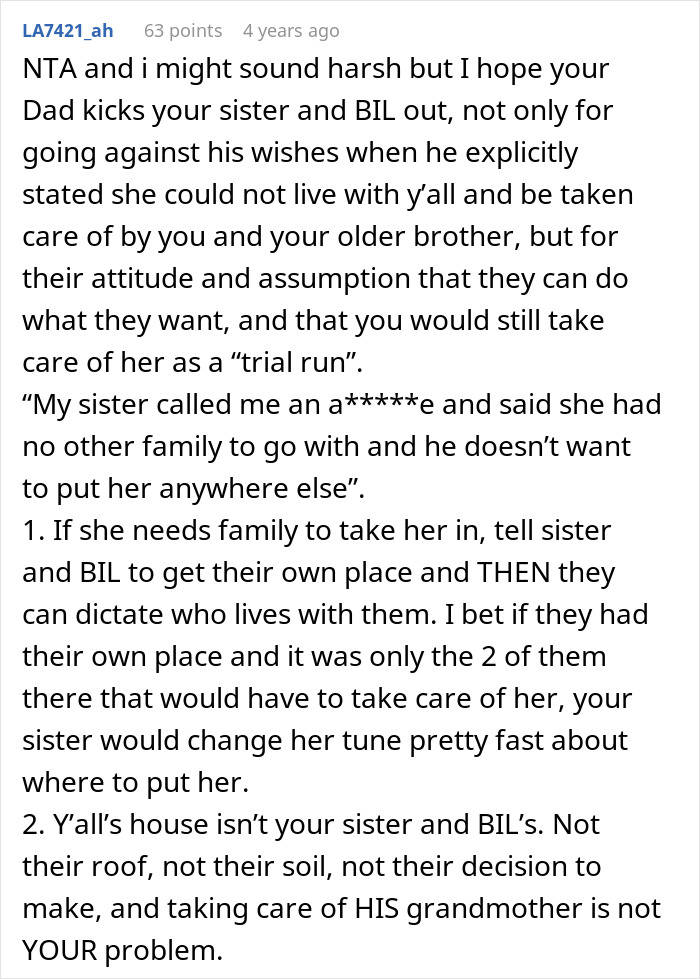
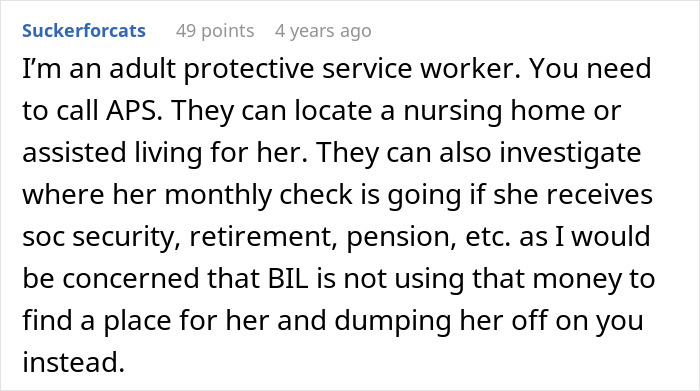

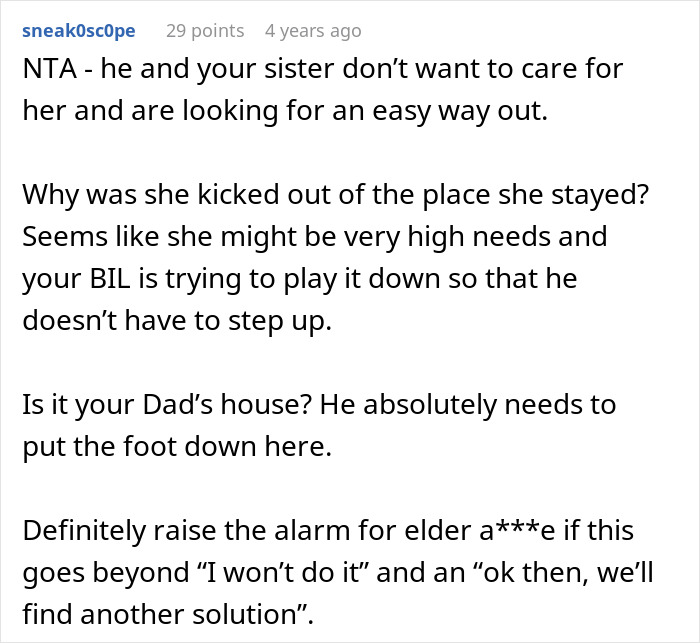
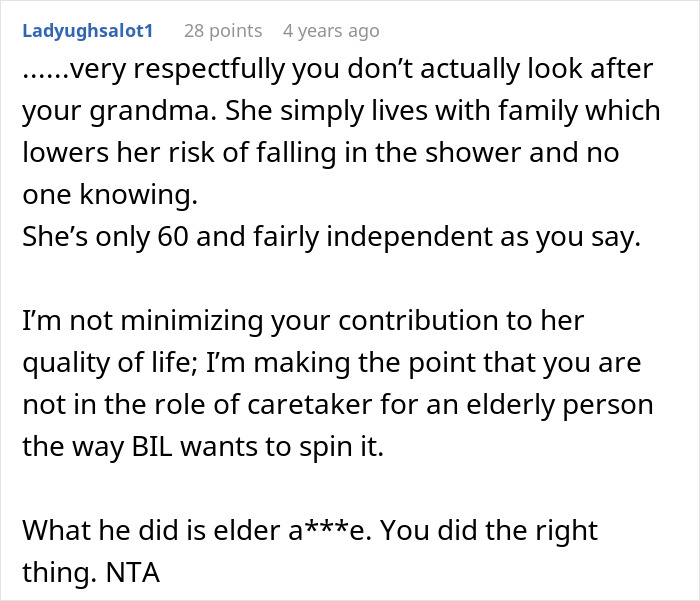

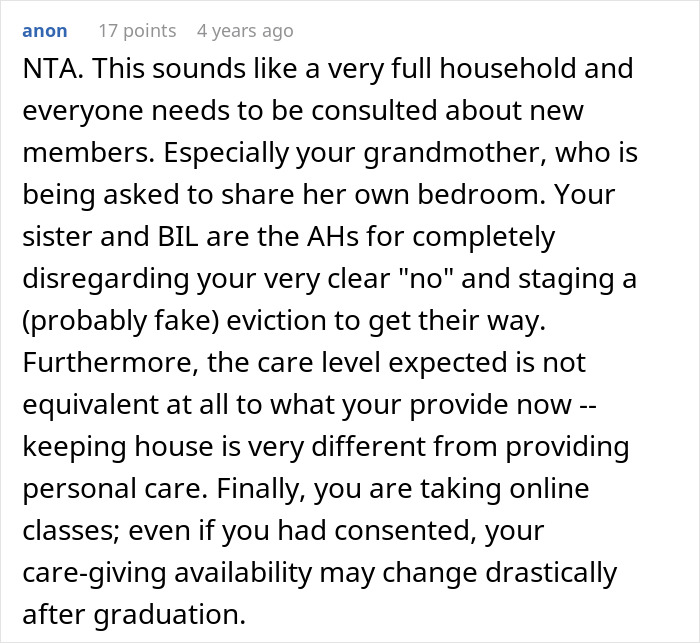
 Follow Us
Follow Us





